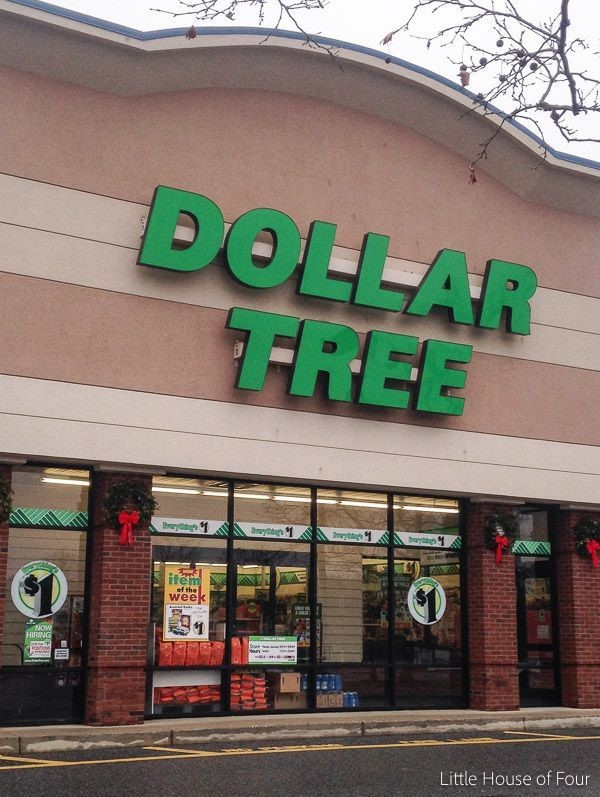
Dollar Tree has become a household name in the United States, synonymous with affordability and convenience. With thousands of stores across North America, Dollar Tree has revolutionized budget shopping, offering a variety of products at a fixed price point. The store’s popularity has only increased over the years, making it a go-to option for shoppers looking for great deals. This article explores the history, business model, product offerings, and the impact of Dollar Tree on the retail industry.
The History of Dollar Tree
Dollar Tree traces its origins back to 1953, when K.R. Perry founded a five-and-dime store in Norfolk, Virginia. Over the decades, the business expanded and evolved into the modern Dollar Tree we know today. In 1986, the company adopted the Dollar Tree name and concept, setting itself apart by selling everything for a single price. This unique approach appealed to budget-conscious consumers and helped the company expand rapidly.
By the 1990s, Dollar Tree had established itself as a major player in the discount retail market. Acquisitions and strategic expansions further solidified its presence, making it one of the largest dollar store chains in the United States. Today, Dollar Tree operates over 15,000 stores across the U.S. and Canada, serving millions of customers every year.
Business Model: Fixed Price for Maximum Savings
The defining feature of Dollar Tree’s business model is its fixed price strategy. Unlike other discount stores that sell items at various low prices, Dollar Tree maintains a strict price cap on all its products. This approach makes it easy for shoppers to budget while ensuring they receive good value for their money.
Dollar Tree achieves its low prices by sourcing products from a mix of manufacturers, closeout deals, and private-label brands. The company focuses on high-turnover items and leverages bulk purchasing to secure the best prices. While some may question the quality of products at Dollar Tree, many shoppers find that the store offers incredible bargains on everyday essentials.
Wide Range of Products at Dollar Tree
One of the biggest attractions of Dollar Tree is its diverse product selection. Customers can find an array of items across multiple categories, including:
- Household Essentials: Cleaning supplies, paper towels, and storage solutions are some of the most commonly purchased items at Dollar Tree.
- Food & Beverages: While the selection may be limited compared to grocery stores, Dollar Tree offers canned goods, snacks, and even frozen foods at unbeatable prices.
- Party Supplies: Dollar Tree is a favorite destination for balloons, gift wraps, and decorations, making it ideal for budget-friendly celebrations.
- Seasonal Items: Whether it’s Halloween, Christmas, or Easter, Dollar Tree stocks seasonal décor and accessories at prices significantly lower than traditional retailers.
- Office & School Supplies: From notebooks to pens and binders, Dollar Tree provides affordable stationery options for students and professionals.
- Health & Beauty Products: Basic personal care items such as shampoos, soaps, and dental care products are widely available at Dollar Tree locations.
- Toys & Crafts: Many parents shop at Dollar Tree for inexpensive toys and arts-and-crafts supplies for their children.
The Impact of Dollar Tree on Retail Industry
Dollar Tree’s success has influenced the retail landscape significantly. Traditional grocery stores, department stores, and even other discount retailers have had to adjust their pricing strategies to compete with Dollar Tree’s affordability. Many shoppers prefer Dollar Tree for its straightforward pricing, avoiding the uncertainty of fluctuating costs at other retailers.
Additionally, Dollar Tree’s expansion has contributed to increased accessibility of budget-friendly shopping options. Many communities, especially lower-income areas, benefit from the presence of Dollar Tree, as it provides essential products at a fraction of the cost found at larger retail chains.
Challenges Faced by Dollar Tree
Despite its impressive growth, Dollar Tree faces several challenges. The biggest concern is inflation and rising costs. The company has struggled to maintain its fixed price point, leading to the introduction of $1.25 and $1.50 items in recent years. While this change has allowed Dollar Tree to keep offering a variety of products, some customers have expressed frustration over the price increases.
Another challenge is competition. Other discount retailers, such as Dollar General and Five Below, have adopted similar pricing strategies and expanded their offerings, intensifying the competition in the budget retail sector.
The Future of Dollar Tree
Looking ahead, Dollar Tree continues to innovate and adapt to the changing retail landscape. The company is investing in expanding its product range and modernizing its stores. The introduction of Dollar Tree Plus, which offers products at price points above $1, allows the company to stay competitive while still maintaining its reputation as an affordable shopping destination.
Additionally, Dollar Tree is increasing its focus on e-commerce, allowing customers to purchase items online for in-store pickup. This digital expansion ensures that the company remains relevant in an increasingly online-driven marketplace.
Conclusion
Dollar Tree has carved out a unique space in the retail world, providing customers with an affordable shopping experience. With its fixed pricing model, diverse product selection, and widespread reach, Dollar Tree remains a top choice for budget-conscious shoppers. While the company faces challenges such as rising costs and competition, its ability to adapt and innovate ensures that Dollar Tree will continue to thrive in the years to come.





